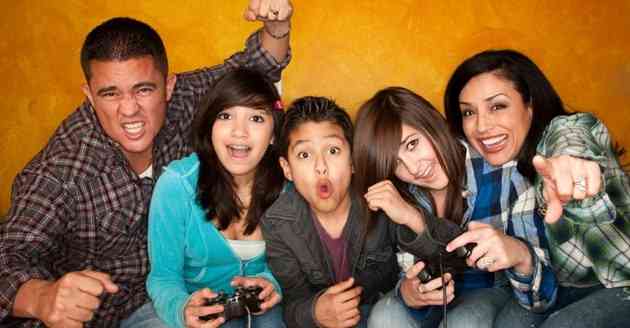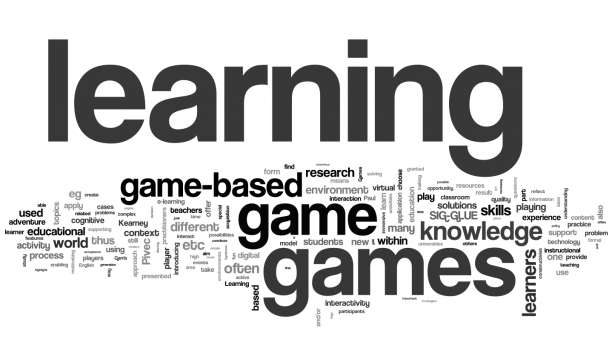When people think of games and education, the first titles that come to mind are things like Math Blaster and Oregon Trail – the games they were allowed to play when given rare free time on a PC at school. These games certainly have their value as educational tools, but learning can happen all the time – even when that isn’t the intended goal of the game. For that reason, games make amazing educational tools for homeschoolers – but even traditional students can stand to gain a lot from playing them.
Learning Happens Best When You Least Expect It
When was the last time you picked up a game for the first time and were instantly good at it? Like any other thing we do, gaming takes the development of skills – and those skills are surprisingly as useful off your PC or console as they are on it.
Different games develop different skills, so it helps to offer your children a variety of different games. Everything from MMOs and RPGs to open-world, sandbox games and FPS titles have something to teach your children – if you know to look for it.
Here are just some of the skills your child can get from playing games:
Reading
How many games have you ever played that had subtitles or written instructions? A child that may grow easily bored with the book he got from the library can still improve his reading when he’s actively interested in the game he’s playing – even when he claims he hates to read.
Writing
Though fanfiction is certainly a popular pastime for many gamers, it’s certainly not the only way games ignite the creative spark in budding authors; there’s even a game that encourages creative writing called Elegy for a Dead World. By having players respond to writing prompts to describe the features of three dead worlds that they encounter and giving them the ability to share stories and poetry with others, Elegy teaches children to value their own creative gifts.
 Gaming encourages togetherness – with family and friends at home and around the world.
Gaming encourages togetherness – with family and friends at home and around the world.
Collaboration
A common argument that every homeschooling parent has dealt with is “How do you deal with the problem of socialization? Doesn’t homeschooling isolate your children?”
If you mention that you use games to teach, suddenly they think they’ve won. However, today’s games are not, by and large, isolating. We play them with friends and family – both in our living rooms and across the world. Games (particularly MMOs) require teamwork and collaboration – and that’s something much more easily accomplished when everyone’s having fun than when pointless group work is assigned.
Money Management
These days, a lot of games have microtransactions – everything from mobile puzzlers to MMOs. These in-game market systems give students the opportunity to learn to budget for the items they want and need – not only by watching their in-game funds, but by taking care with their real-world spending, too – often so they can invest a portion of their allowance or paycheck into those games.
These are just a few of many skills a student can develop by playing games – and it happens without them actively trying, and without feeling like they’re in school.
Social Studies
Some games, though they may not be the most historically accurate, inspire kids and adults alike to want to know more about the era they portray. A gamer that plays Assassin’s Creed IV: Black Flag may find themselves wanting to learn more about the golden era of piracy. Others, like Never Alone, take greater care with their subject matter and give the player insight into another culture. Using a game to get a kid interested in the topic first makes them much more receptive to learning about it later on.
Some games, like Elegy for a Dead World, encourage players to be creative, and to share that creativity with others.
Games Are Better For You Than You Think
A common argument often produced by opponents of learning through gaming is that excessive gaming can lead to addiction. While video game addiction is a very real thing, playing a lot of games is not, in and of itself, a sign of addictive behavior. If your child reads excessively, are you going to be concerned that she is addicted to reading, or are you going to praise her intelligence and her love of learning? The fact that most would do the latter comes down to a cultural bias against digital entertainment – and as Tina Boster points out in a talk given at the 2012 Love to Learn Conference, it’s a bias that was once held against too much reading.
So why is gaming so good for us? Because we actively, enjoyably engage with them, we learn and retain more, and without the need for any sort of standardized test. The game itself is our lesson and our test, because we cannot progress until we’ve accomplished the goals set out by the game. If we can beat the game, we’ve learned something from it – something different from each level of difficulty we’ve mastered.
Games also teach us to persevere in our goals – for few things are quite as satisfying as achieving that next level, which often requires a lot of patience and dedication.
The next time you think that your child – be they a homeschooler or traditional student – is playing too many games, pause for a moment and consider what they might be getting out of it. You may just be persuaded to pick up a controller and join them – because a brain at any age can always use a workout.







Published: Apr 11, 2015 10:37 pm